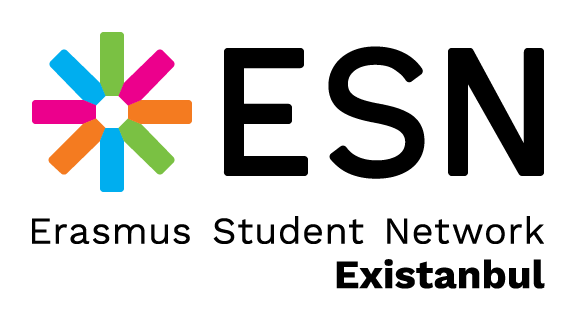 World Sign Language Day, celebrated annually on September 23rd, is an important occasion that raises awareness about the significance of sign languages as a fundamental human right for deaf and non-speaking individuals worldwide.
World Sign Language Day, celebrated annually on September 23rd, is an important occasion that raises awareness about the significance of sign languages as a fundamental human right for deaf and non-speaking individuals worldwide.
It highlights the rich diversity of sign languages, the need for inclusive communication, and the vital role they play in bridging the communication gap for millions of people. As part of the global Erasmus Student Network (ESN), ESN Existanbul recognizes the importance of inclusivity in education and communication, ensuring that all students, regardless of ability, feel welcome in international communities.
The Importance of Sign Language
Sign languages are not universal; they are as diverse as spoken languages, with unique grammars, structures, and cultural significance. Turkish Sign Language (TİD) is distinct from American Sign Language (ASL) or British Sign Language (BSL), but all serve the same essential function—enabling the deaf, hard-of-hearing and non-speaking community to express themselves fully and meaningfully.
For deaf and non-speaking individuals, sign language is their primary mode of communication. It allows them to communicate with the world around them, from everyday interactions to academic, professional, and social settings. Yet, the deaf and non-speaking community often faces marginalization and communication barriers, especially in environments where sign language is not widely understood or used. Celebrating World Sign Language Day brings attention to these challenges and underscores the need for broader sign language education, access, and awareness.
Sign Language and the Erasmus Experience
The Erasmus program is known for fostering international understanding and cultural exchange, but it also brings attention to the diverse needs of students, including those with disabilities. Many international students who come to Turkiye, whether they are hearing or hard of hearing, may face challenges adapting to new languages, customs, and forms of communication.
For Erasmus students with hearing and speaking impairments, integrating into a new country can be particularly difficult without access to local sign languages or adequate support services. ESN Existanbul, in alignment with the goals of inclusivity, seeks to ensure that students with disabilities are provided with the resources they need to succeed academically and socially in Turkiye. By promoting awareness of sign languages and offering inclusive events, the Erasmus community can help make studying abroad a more accessible experience for all students.
 How to Support Sign Language Inclusion
How to Support Sign Language Inclusion
1. Learn Basic Sign Language: Just as many Erasmus students make an effort to learn basic Turkish phrases to communicate with locals, learning a few basic signs in Turkish Sign Language (TİD) can be incredibly meaningful for deaf, hard-of-hearing or non-speaking students. Simple phrases such as “Merhaba” (Hello), “Nasılsın?” (How are you?), or “Teşekkürler” (Thank you) can go a long way in fostering inclusivity.
2. Raise Awareness: Raising awareness about the importance of sign language, both within student communities and beyond, is crucial. Whether through social media campaigns, workshops, or informal gatherings, promoting the use of sign language can help break down communication barriers.
3. Support Accessibility Initiatives: ESN Existanbul encourages everyone to support initiatives that promote accessibility, whether that’s ensuring that events include sign language interpreters, advocating for subtitles on video materials, or simply creating spaces where all students, including those who use sign language, feel included and welcome.
4. Engage with Deaf and Non-speaking People’s Culture: Learning sign language is not just about communication—it's also about engaging with the culture of the deaf and non-speaking community. Deaf and non-speaking people’s culture has its own history, traditions, and values, and understanding these aspects enriches the international student experience. Participating in deaf and non-speaking awareness events, attending sign language classes, or volunteering in deaf and non-speaking communities are great ways to support inclusivity.
Why Does World Sign Language Day Matters?
World Sign Language Day is more than just a celebration of language; it is a call to action. It reminds us of the importance of recognizing and respecting the communication needs of everyone, especially those who rely on sign language. It is a day that encourages society to reflect on how inclusive we truly are and what steps we can take to make our world a better place for the deaf, hard-of-hearing and non-speaking community.
In the context of the Erasmus experience, this day holds special significance. As we promote international exchange and cultural understanding, we must also promote accessibility and inclusivity. Every student, regardless of their ability or disability, deserves the opportunity to participate fully in academic, social, and cultural life.
Embracing Diversity
At ESN Existanbul, we believe in the power of inclusion, and we are committed to ensuring that all students, whether they communicate through spoken languages or sign languages, feel valued and supported. By celebrating World Sign Language Day, we take one step closer to creating a more inclusive environment for all students.
As we recognize this important day, let us also remember that the work doesn’t stop here. Learning and advocating for sign languages is an ongoing process, one that involves all of us. Together, we can help ensure that sign language users feel seen, heard, and understood—not just on World Sign Language Day, but every day.
Let us celebrate the beauty of diversity in communication and work towards a future where language, in all its forms, is a bridge that connects us all.

Follow us